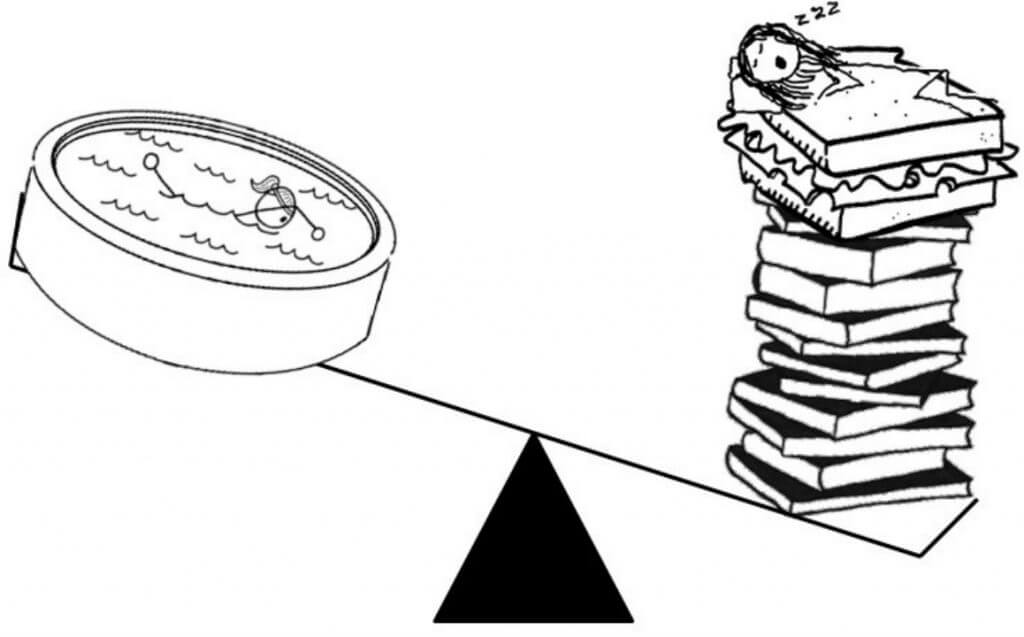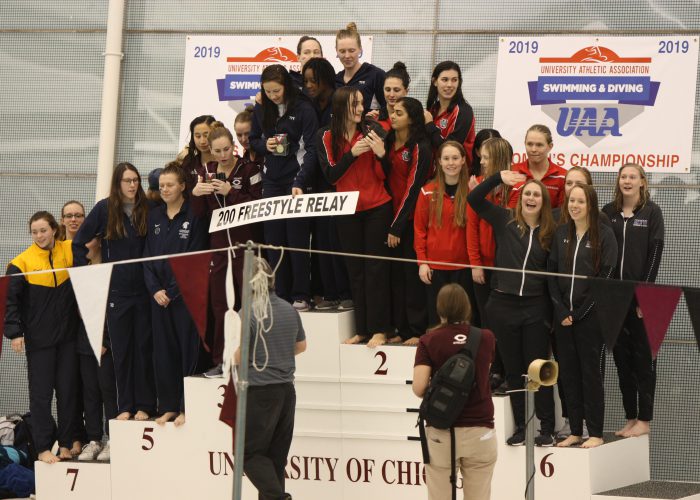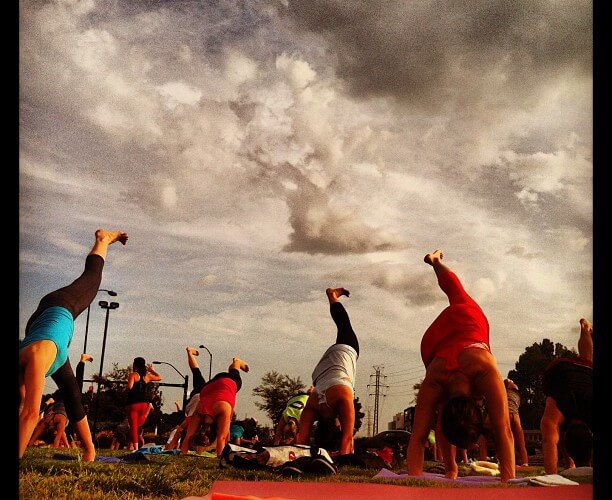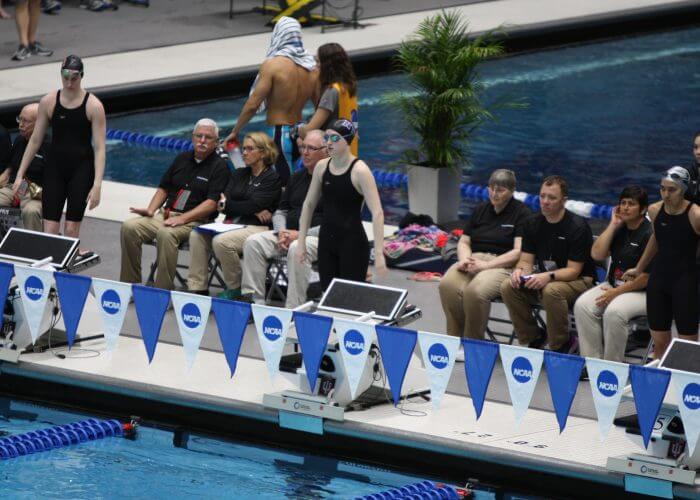The Importance of Balance Amidst the Grind

By Haley Wen, Swimming World College Intern.
The Grind
As swimmers, we are taught from a young age to worship the grind. We buy T-shirts that proudly read “eat, sleep, swim”; we commiserate together over the painful morning practice before coming back for seconds later that afternoon; and we all are familiar with that one phrase: “I can’t, I have swim practice.” The grind is what gives us friends for life, and it’s what develops unparalleled time management skills. The grind shapes us into the people we are after our swimming careers wind down.
Yet even when you genuinely love the sport, the grind can take its toll. Left untreated, a swimmer addicted to the grind could easily find themselves a victim of burnout. There’s no foolproof way to prevent burnout; however, there is something swimmers can do to help prevent it: cultivate balance.

Photo Courtesy: Dennis Wen
Balance
Swimmers need to be able to find balance even in the midst of their hectic lifestyle. And swimming is just that: a lifestyle. Practice might only take up three to five hours of one day, but it stays on the brain and with the body long after you get out of the pool. Swimming changes what and when you eat – it could change where you live or go to school. It even factors into small parts of a normal day, like when to take the stairs or the elevator. There’s something to be said of such an all-consuming passion, and not many people ever get to have that in their lives. But just as all passions can get out of hand when unchecked, the passion for swimming can become a double-edged sword.

Photo Courtesy: Madison Kennedy
That is why it is important to incorporate balance into your life as a swimmer. No matter how much you love swimming, it shouldn’t be the only thing you are passionate about or involved in. This could look as simple as picking up a new hobby like cooking or painting. It could be volunteering at the local animal shelter or library on the weekends. It’s easier said than done, of course. After all – especially in high school – swimming and school can take up your entire day, leaving you exhausted when the weekend rolls around.
Developing balance doesn’t have to mean going all in on the grind for another hobby though. Getting interested in cooking doesn’t have to mean taking an eight-hour weekend cooking course. It could be spending an hour a week with your parents learning how to cook different recipes. It could be buying yourself a paint-by-numbers to work on every Sunday.
The Result

Photo Courtesy: Dennis Wen
When swimming is going well and you love it more than ever, it might not seem important to develop balance in your life. Unfortunately, one of the many lessons swimming teaches us is that success is not constant, and sometimes even when we are grinding harder than ever, the results don’t come as quickly as we would like. This is why you need balance. Balance gives you a place to go where swimming doesn’t follow. That way, when the grind starts back up again, you’re ready to face it head on.
It seems counter-intuitive to take time away from swimming to get better at it, especially considering the grind is a huge part of the culture. However, while the grind is important to getting better, it doesn’t have to mean that there is no room in your life for any other passions. Swimmers are so lucky to have a sport that challenges their capacity for love. When we are tired and broken down, we still come back for more. That is why it’s so crucial to have another space to slow down and actually have a break, if only for a little while.
-All commentaries are the opinion of the author and do not necessarily reflect the views of Swimming World Magazine nor its staff.




Dawn Walker Corey DeClue Natalie Hunt
Love this! I’ve found myself at times consumed only by swimming, and it ALWAYS takes a toll on me. Great to highlight the importance of focusing on competencies and interests out of your sport!
Amanda Wignell
Chloe Newbigging. Good reading- maybe worth a reading response for school